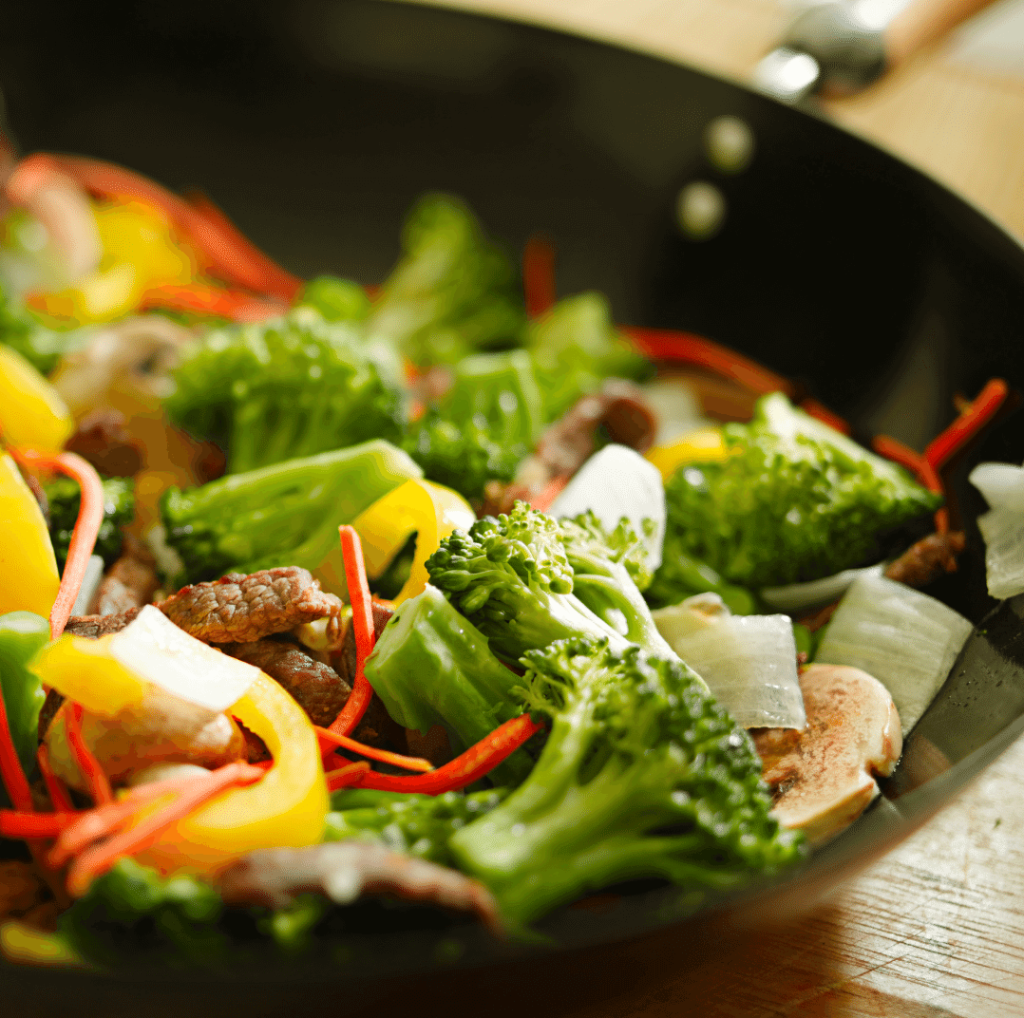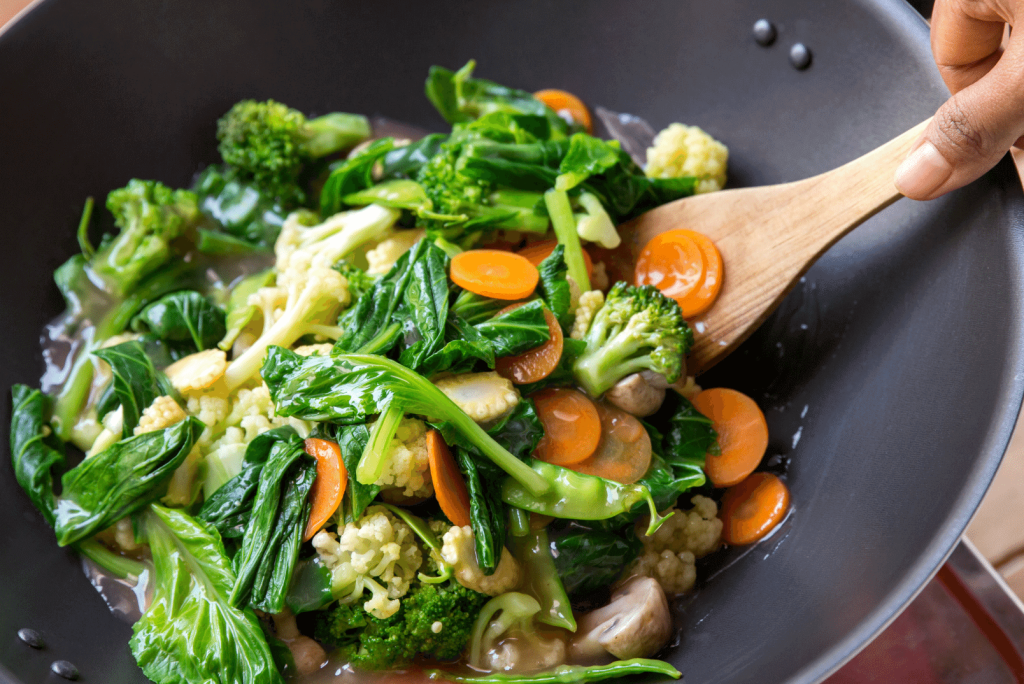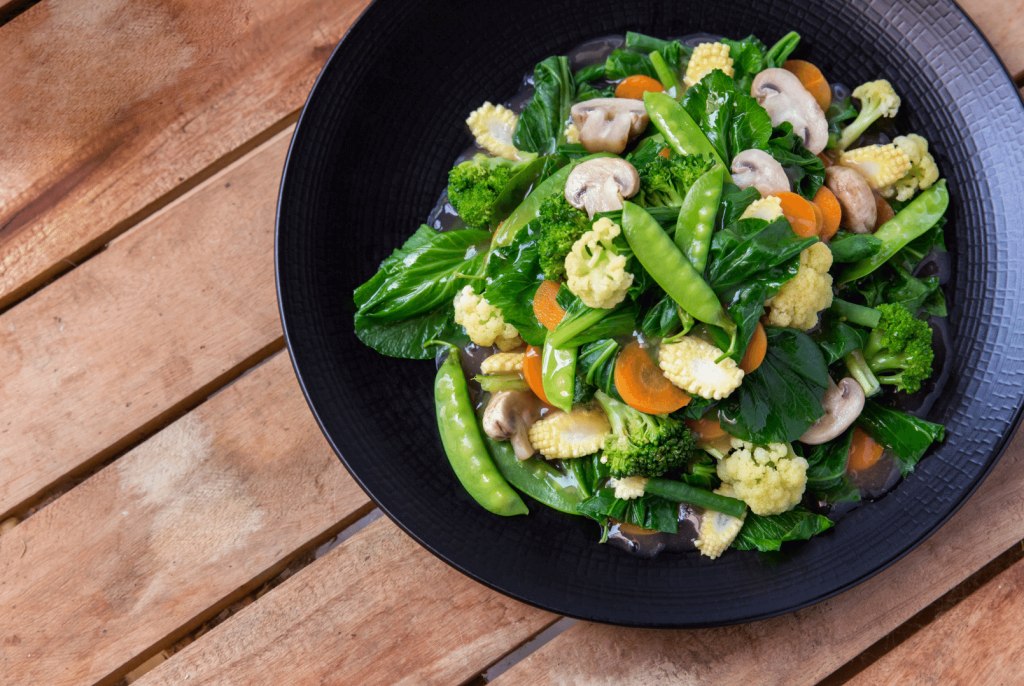
What Is the Chinese Medicine Diet and How Does It Work?


What Is the Chinese Medicine Diet and How Does It Work?
By taking into account the whole person and using analogies and patterns to describe imbalances, TCM philosophies are very different from conventional medicine or nutrition. As a result, TCM is often much more effective than at helping maintain wellness and performance where conventional medicine doesn’t recognize as treatable conditions. TCM also teaches intuitive eating and how it relates to overall balances in the body.
The foundation of TCM is the concept of Qi, the life force that flows through the body. TCM believes that when Qi is in balance and flowing freely, the body can heal itself. The TCM-medicated diet is a system of food therapy that uses the principles of TCM to maintain that balance.
TCM explains health and imbalance through principles of nature and opposition. The balance of the five elements, Yin/Yang, and hot/cold is essential for well-being.
Imbalances in the body’s Yin and Yang, hot and cold, and five elements can lead to a variety of health problems. Some common symptoms of imbalances include digestive issues, low energy, sleeping problems, and changes in emotions.
The Five Elements in Chinese Medicine and How They Relate to Food

Five elements: wood, fire, earth, metal, and water correspond to organs in the body, flavors, emotions, and personalities. By understanding your constitution’s elemental aspects, you can make choices to support it. For example, if you have a fire constitution, you should eat moderate amounts of foods that are bitter or sour, and pick foods associated with the heart and small intestine, such as leafy greens and citrus fruits.
Wood element
Flavor: sour and acidic – lemons, vinegar, and pickles
Color: green
Organs: liver and gallbladder
Emotions: growth, flexibility, and creativity.
Personality traits: assertive, competitive, and have a strong desire for achievement.
Supports: healthy digestion and detoxification
Season: spring
Fire element
Flavor: bitter – bitter melon, leafy greens, sprouts, dandelion greens, and dark chocolate
Color: red
Organs: heart and small intestine
Emotions: warmth, joy, and passion.
Personality traits: outgoing, sociable, and have a strong sense of enthusiasm.
Supports: promotes circulation and reduces inflammation in the body
Season: spring
Earth element:
Flavor: sweet – sweet potatoes, squash, and carrots
Color: yellow
Organs: spleen and stomach organs
Emotions: nurturing, grounding, and stability.
Personality traits: caring, supportive, and have a strong sense of responsibility.
Supports: digestion and strengthens the immune system
Season: late summer
Metal element
Flavor: pungent and spicy – root vegetables, ginger, garlic, and onions
Color: white
Organs: lung and large intestine
Emotions: clarity, precision, and organization.
Personality traits: disciplined, structured, and have a strong sense of order.
Supports: healthy respiration and elimination (bowel movements)
Season: fall
Water element
Flavor: salty – sea vegetables, miso, and soy sauce
Color: black
Organs: kidney and bladder
Emotions: wisdom, depth, and introspection
Personality traits: insightful, intuitive, and have a strong sense of spirituality.
Supports: healthy fluid balance and promote healthy kidneys
Season: winter
Yin and Yang
In TCM, the concept of Yin and Yang is about balance. You should strive to maintain a balance between Yin and yang foods in your diet. If you feel tired, cold, and sluggish (too much Yin), you may need to incorporate more Yang foods into your diet. If you feel overheated or have symptoms such as heartburn or inflammation (too much Yang) you should eat more Yin foods.
Yin
The feminine, dark, calm, cooling, and nourishing aspects of nature
Constitutional traits: Generally tend to have a smaller build and lower energy levels They may experience coldness in their extremities, dry skin, and a lack of thirst.
Emotions: More introverted, sensitive, and prone to worry
Beneficial foods: warm, cooked foods and herbal teas. Foods that nourish the Yin and balance energy levels
Yin foods (which balance Yang): cucumbers, watermelon, tofu, and mung bean sprouts
Yang
The masculine, light, active, energizing and warming aspects of nature
Constitutional traits: larger build and higher energy levels. They may experience heat in their extremities, oily skin, and a strong appetite.
Emotions: More outgoing, active, and prone to impatience
Beneficial foods: cooling foods and herbal remedies that help balance their energy levels
Yang foods (which balance Yin): ginger, garlic, black beans, and lamb
Heating (hot) and cooling (cold) foods

Hot foods are warming to the body, while cold foods are cooling to the body, both in terms of temperature and energetically. Hot and cold foods balance the body’s internal temperature and promote health. If you are feeling cold or experiencing symptoms such as chills, you may need to eat more heating and cooked foods. If you are feeling hot or have symptoms such as sweating or thirst, you may need to consume more cooling or cold foods.
Symptoms of too much heat in the body can include:
- Red face
- Bloodshot eyes
- Thirsty
- Fast pulse
- Dry mouth
- Dry skin
- Irritability
- Constipation or forceful diarrhea
Symptoms of too much cold in the body can include:
- Pale complexion
- Low energy
- Lack of motivation
- Feeling tired after you eat
- Weight gain
- Tending to be cold when everyone else is not
- Soft stools that fall apart in the toilet
The cause of symptoms of heat and cold in the body can signify either a deficiency or an excess. In case of excess, there is an overabundance of something causing these symptoms. In cases of deficiency, there is not enough of one temperature energy to balance out the other.
You can have deficiency and excess at the same time. For example, an infection causes certain types of excesses and other types of deficiencies. It is important to consult with a TCM practitioner so that they can guide you in your diet.
Hot foods: chili peppers, cinnamon, onions, and chicken
Cold foods: watermelon, cucumber, tofu, and coconut
Your constitution can change over time. Diet, lifestyle habits, and environmental factors affect balance in your body. It’s important to re-evaluate your constitution, and then make changes to support your well-being.
Cravings
In TCM, cravings are a sign of imbalance in the body. Imbalances are related to specific organs or systems. Cravings are a sign that these organs or systems are not functioning well.
Some common cravings and their TCM explanations include:
- Sweet cravings: Indicate a deficiency in the spleen and stomach. They are responsible for digestion and transforming food into energy. Sweet foods tonify the spleen and stomach, this temporarily relieves the deficiency. Long-term consumption of overly sweet foods causes an imbalance that leads to more digestive issues.
- Salty cravings: This is a sign of a deficiency in the kidney system. The kidneys are responsible for water metabolism and regulating the body’s salt balance. Salty foods tonify the kidneys and will temporarily relieve the deficiency. Long-term over-consumption of salty foods may lead to more imbalances and health issues.
- Sour cravings: Indicates a liver imbalance. The liver regulates the body’s qi and blood flow. Sour foods stimulate the liver and promote the movement of qi and blood. Excessive consumption of sour foods can make the imbalance worse. This leads to digestive issues or emotional imbalances.
- Bitter cravings: This is a sign of a heart or small Intestine imbalance. These organs are responsible for regulating digestion and circulation. Bitter foods clear heat and promote digestion. This may help to relieve the imbalance. Overconsumption of bitter foods leads to digestive discomfort or other imbalances.
- Spicy cravings: Indicates an imbalance in the lung or large Intestine systems. These organs are responsible for regulating respiration and elimination. Spicy foods promote circulation and get rid of coldness. This can temporarily relieve the imbalance. Excessive consumption of spicy foods can make the imbalance worse, however.
- Seasonal cravings: Craving warming and cooked foods in the winter, and more raw foods in the summer. You’ll have less digestive fire during colder seasons and thus crave soups, stews, and cooked foods over salads. For this reason, raw food diets tend to be unsustainable in cold climates.
In TCM, cravings are a valuable source of information about the body’s imbalances. They help guide treatment to restore balance and promote optimal health. Satisfying a craving may provide temporary relief. Take a moment to pay attention to why you are having the craving.
Other Dietary Principles in Traditional Chinese Medicine

Eating with the seasons
TCM recognizes that the seasons affect the body’s Qi. It recommends adjusting your diet to the seasons. When the weather is hot, eat cooling foods such as watermelon and cucumber to balance the heat. When it is cold, eating warming foods like ginger and garlic balances the cold.
Cooking methods
The way food is cooked affects its properties. Boiling or steaming vegetables can help to release their medicinal properties. Frying can have negative effects and cause imbalances. TCM encourages cooking methods that preserve food’s natural flavors and nutrients.
Eating food that is close to body temperature can help improve digestion. Normal body temperature is around 98.6°F. Eating food that is too hot or too cold can put a strain on the digestive system.
When food is too hot, it can damage the digestive organs and create an excess of heat in the body. This causes symptoms such as inflammation, dryness, and irritability.
Consuming food that is too cold can weaken the digestive organs. This causes symptoms such as bloating, indigestion, and fatigue.
By eating food that is close to body temperature you help to support the digestive system. This allows the body to easily break down and absorb nutrients from the food. It also helps to reduce stress on the digestive organs and prevent digestive problems.
Eating food that is close to body temperature is a simple way to support the digestive system.
Food combining
Certain food combinations can promote the food’s medicinal properties. Other combinations can diminish or even cancel them out. Foods in a meal should balance one another out with their hot and cold properties. For example, ginger is warm and fish is cool, so they balance each other. Tofu and seafood are both cooling and can result in dampness and be hard to digest when eaten together.
Spices and herbs
Spices and herbs are another way to change food’s medicinal properties. Certain herbs and spices enhance food’s healing properties. Ginger is often added to soups and stews to help digestion and warmth in the body. Cinnamon helps to regulate blood sugar levels in sweets.
Mindful eating
Pay attention to the texture, taste, and temperature of what you eat. Also, pay attention to how food feels in your body. By being aware of this you have a better understanding of how food affects your well-being. If you notice some foods don’t make you feel good, you shouldn’t eat them.
Eating locally
Eating foods that are in season and grown locally to where you live is important in TCM. By eating foods that are grown in the same climate that you live in, you are more in balance with your surroundings. TCM emphasizes the importance of fresh, whole foods and discourages processed foods.
Designing your Plate
With a little creativity and practice, your plate will be full of flavors and colors that support your well-being.
Balance the five flavors
Sweet, sour, bitter, salty, and pungent. Each flavor corresponds to different organs and has unique properties. A balanced meal should include all five flavors in moderate amounts.
Include a variety of colors
Different colors correspond to different elements and organs in the body. A balanced meal should include vegetables in a rainbow of colors to nourish all the organs.
Cooking method
Steaming, boiling, and stir-frying supply many nutrients and are easier to digest. Temperature is not just about the spiciness of your food. Foods that are closest to body temperature are the easiest to digest. Taking time to chew food that is raw or cold in temperature helps with digesting.
Balance spice
The flavor of “spice” varies from culture to culture. Every food has an energetic temperature. Foods like watermelon and cucumbers are on the cool side. Ginger, peppers, and cinnamon are on the warm end of the spectrum.
If you tend to have a cold constitution, eat more warm foods, such as ginger, cinnamon, and peppers. These help you digest your food and balance blood sugar.
If you tend to have a warm constitution, eat more cooling foods, such as watermelon, cucumber, and mung bean. These can soothe heartburn and smooth digestion.
The TCM medicated diet is a holistic approach to diet. It recognizes the connection between the body, mind, and emotions. The TCM medicated diet is not only about what we eat, but how we eat, and the way in which we live our lives. Creating a balance that is harmonious with your internal and external environment.
A TCM practitioner can help you identify your constitution and imbalances. They also help you develop a customized dietary plan to address any imbalances.
At BiOptimizers, we’re agnostic about diets. Rather, we take the strength of each diet as nutritional strategies you can apply as relevant so you can maximize your health, aesthetics, and performance. To learn more, click here to download your first chapter of our Nutrition Bible.
